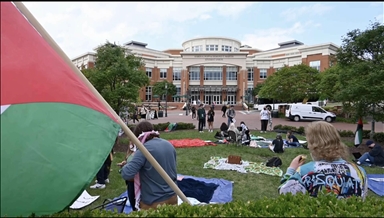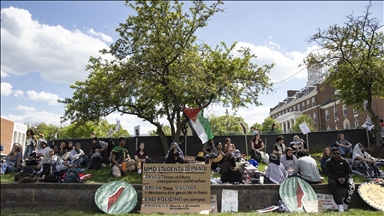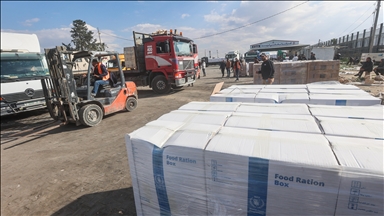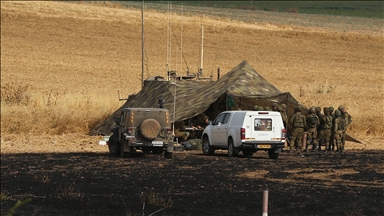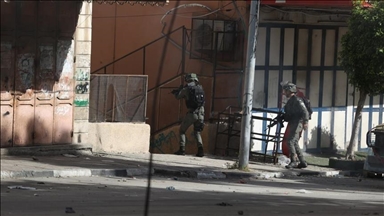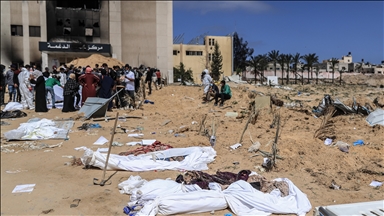Confined by Israel, elderly Palestinians of Hebron face social isolation
Israel exercises direct control over 20% of Hebron known as the H2 area, home to some 33,000 Palestinians
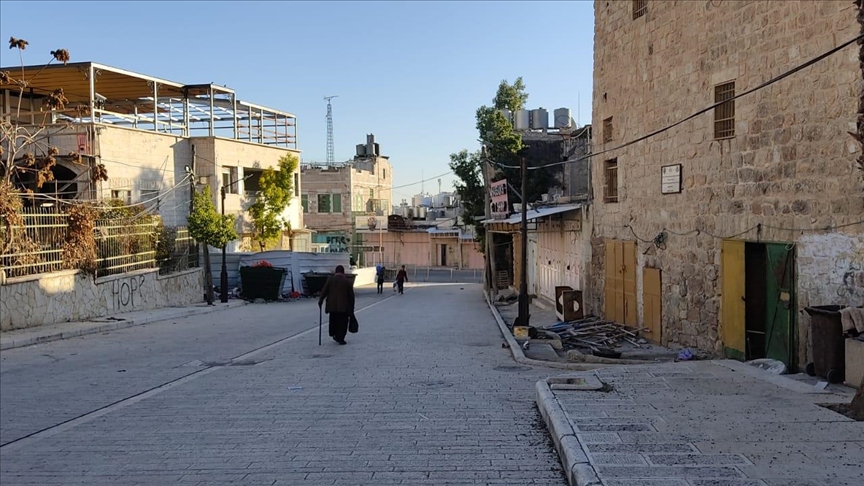
HEBRON, Palestine
Driving back home, Tayseer Zahdeh has to park his car hundreds of meters away from his home in Hebron city in the occupied West Bank.
Zahdeh, a gynecologist, lives in the settler neighborhood of Tel Rumeida in Hebron’s Old City since he was a child.
“The Israeli occupation authorities declared our neighborhood a closed military zone, and our suffering has started ever since,” Zahdeh, 60, told Anadolu Agency.
He said most Palestinian residents have departed from the neighborhood due to the daily dangers they face as a result of Israeli restrictions and settler attacks.
“Here, people die in very humiliating conditions,” Zahdeh said. “One of my major concerns is that if I needed an ambulance one day, it would be impossible to reach my home,” he said.
Zahdeh recalled the story of his neighbors who lost their father due to Israeli restrictions.
“Their 75-year old father suffered a heart attack and the ambulance was prevented by the Israeli army from reaching their home,” he said.
“As the Palestinians are banned by the Israeli army from driving their cars in the neighborhood. My neighbors had to carry their father and run for hundreds of meters to cross the military checkpoint to reach the ambulance, but their father breathed his last before they reach there.”
Zahdeh said he had attempted to open a hospital in his 740-meter house in the 1990s, but he was prevented by the Israeli army from preparing the hospital. Worse still, the army occupied the top of his house for eight years in 1998.
Social isolation
The elderly Palestinians of Hebron’s Old City face many risks due to Israeli military restrictions in the neighborhood. The area lacks specialized medical centers, let alone preventing ambulances from reaching there in case of an emergency.
As a result, many Palestinians prefer to move away from the area to avoid the Israeli restrictions and protect themselves against possible settler attacks.
“My son tried to get married and live with me in the area, but many families refused to allow their daughters to live here,” Zahdeh said.
Pointing to a few houses around his home, Zahdeh recalled the stories of many elderly Palestinians, who are socially isolated since their sons and daughters married and lived in another different area.
“This social isolation means that within the next few years, the area will be completely empty from any Palestinians. Young couples don’t live here,” Zahdeh said with dismay.
Settler attacks
Meanwhile, Israeli settlers live in Tel Rumeida with full freedom and privileges and under the protection of the Israeli army.
Zahdeh can’t sit at his home without making sure that all the doors are locked to protect himself and his wife against any unexpected settler attack.
“Even though we lock the doors, the settlers throw rocks and glass bottles at our windows,” he said. “This is how we live here since the settlers came to the area in the 1990s.”
Palestinian NGO, Youth Against Settlements, estimates that the Israeli measures in the heart of Hebron have caused the closure of all 1,800 shops in the Old City, 530 of which were closed upon orders from the Israeli army.
According to the NGO, there are about 800 settlers living in the heart of Hebron in five settlement outposts.
Israel exercises direct control over 20% of Hebron known as the H2 area, which is home to some 33,000 Palestinians.
According to the Hebron Protocol of 1997, the H1, is controlled by the Palestinian Authority. All security arrangements and travel permits for residents are coordinated between the Palestinian Authority and Israel via the military administration of the West Bank.
The Jewish settlers have their own governing municipal body, the Committee of the Jewish Community of Hebron.
Zahdeh recalled an altercation with and Israeli soldiers as he was going back to his home.
“He told me that we bought all of Jerusalem, tell us how much you want to pay for your house and get out of here,” he said.
“I told him that the price of this house is just a live bullet from your gun to my heart.”
Israeli and Palestinian estimates indicate that there are about 650,000 settlers in West Bank settlements, including occupied Jerusalem, living in 164 settlements and 116 outposts.
Under international law, all Jewish settlements in occupied territories are considered illegal.
Anadolu Agency website contains only a portion of the news stories offered to subscribers in the AA News Broadcasting System (HAS), and in summarized form. Please contact us for subscription options.


